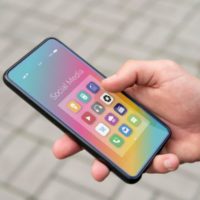
Sprint felt the hit in Q4. They say a net loss of $1.3 billion, which a huge chunk of change compared to the net loss of $929-million the same quarter of the previous year. One fairly large reason being the purchase of the iPhone. Sprint spent 25% of their equipment costs, $630-million, just on iPhones.
“We continue to believe the iPhone will bring significant value to Sprint over the long-term, and early results are in line with or better than our business case assumptions,” said Daniel R. Hesse, Sprint’s chief executive.
This same issue has arisen over at AT&T. They have been telling investors since 2008 that their profits from iPhone sales and customer accounts would rebound. But in January the company’s stock dropped when projected 2012 profits were weaker than expected. What was the common factor? Selling the iPhone to customers. The subsidized price compared to the cost that AT&T was paying to get them was severely squeezing their profit margins.
Verizon is in the same boat. They have missed expected profits all due to the iPhone. How does Apple feel about all of this? They don’t care because they had their best quarter in 35 years.
Now, how does this all play back to Android. Considering that carriers have to pick up devices from manufacturers out-of-pocket to offer them to us customers, it means a lot. If these carriers continue to lose money and spend money on a device that everyone wants it will have a bigger impact on the consumers as a whole. It is going to make expansion of service slower. It will also result in hiked data prices and rate plans. Not to mention the lack of funds to bring us more devices that we all would much rather have. In the long run the iPhone is actually causing customer issues no matter what device they are more in favor of. I am not saying it isn’t a good device, just that it sure seems to be a pretty big leader in profit losses across all carriers selling it.
Can they say the same thing about Android? I am certain there are supporting numbers that account for loss for every device on the market. With so many makes and models of Android available I can imagine that we cost the carriers just as much if not more than the iPhone does. The difference is they aren’t linked to one specific device. Even though the numbers point towards iPhone as the devil, the consumers and the manufacturers are more to blame.
What do you guys think of all of this? Are you glad T-Mobile skipped picking up the iPhone and throwing themselves under the same bus? Would you rather see all carriers offer the device and hike prices to bounce back from profit losses? Leave your feed back below in the comments.
Via LATimes









